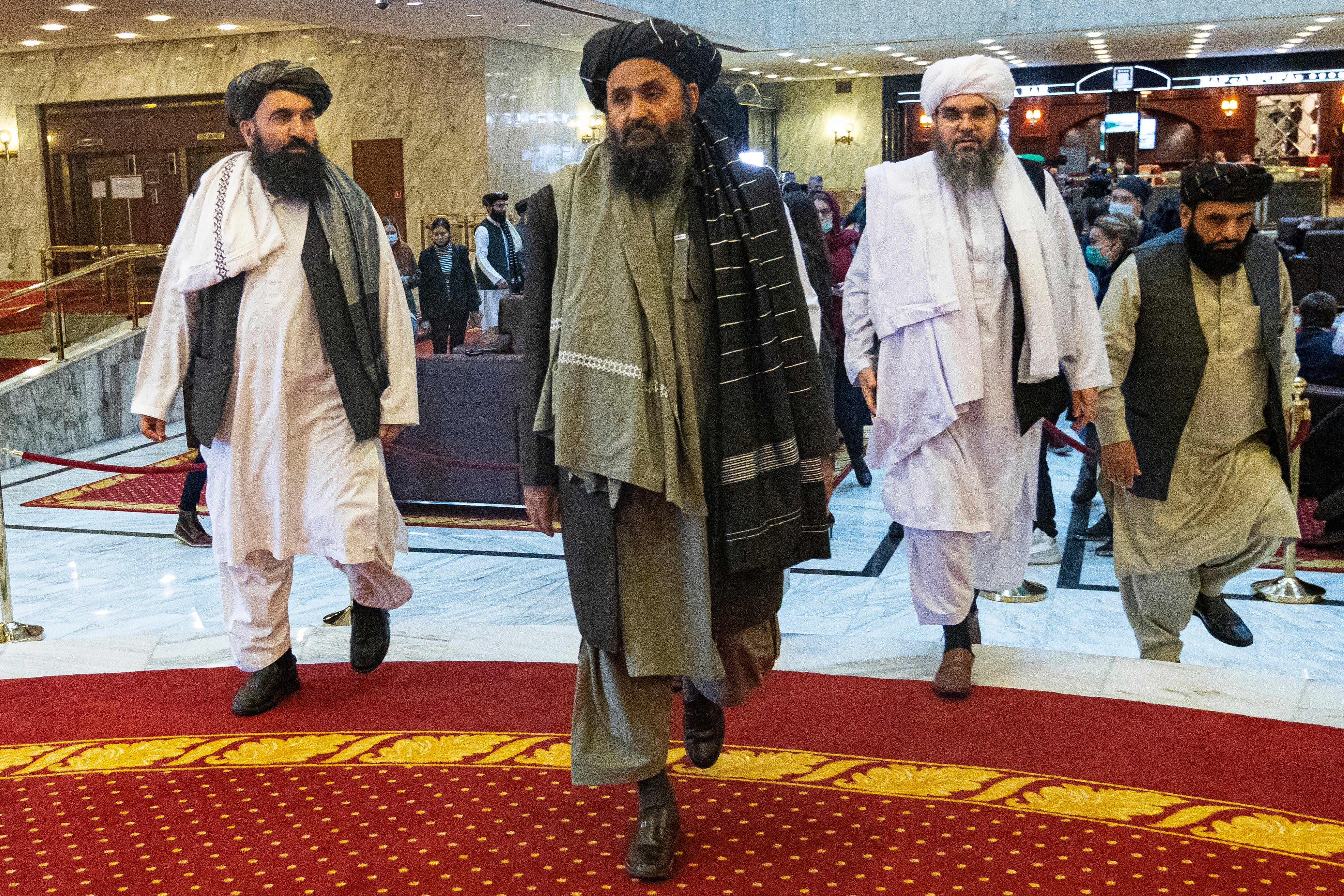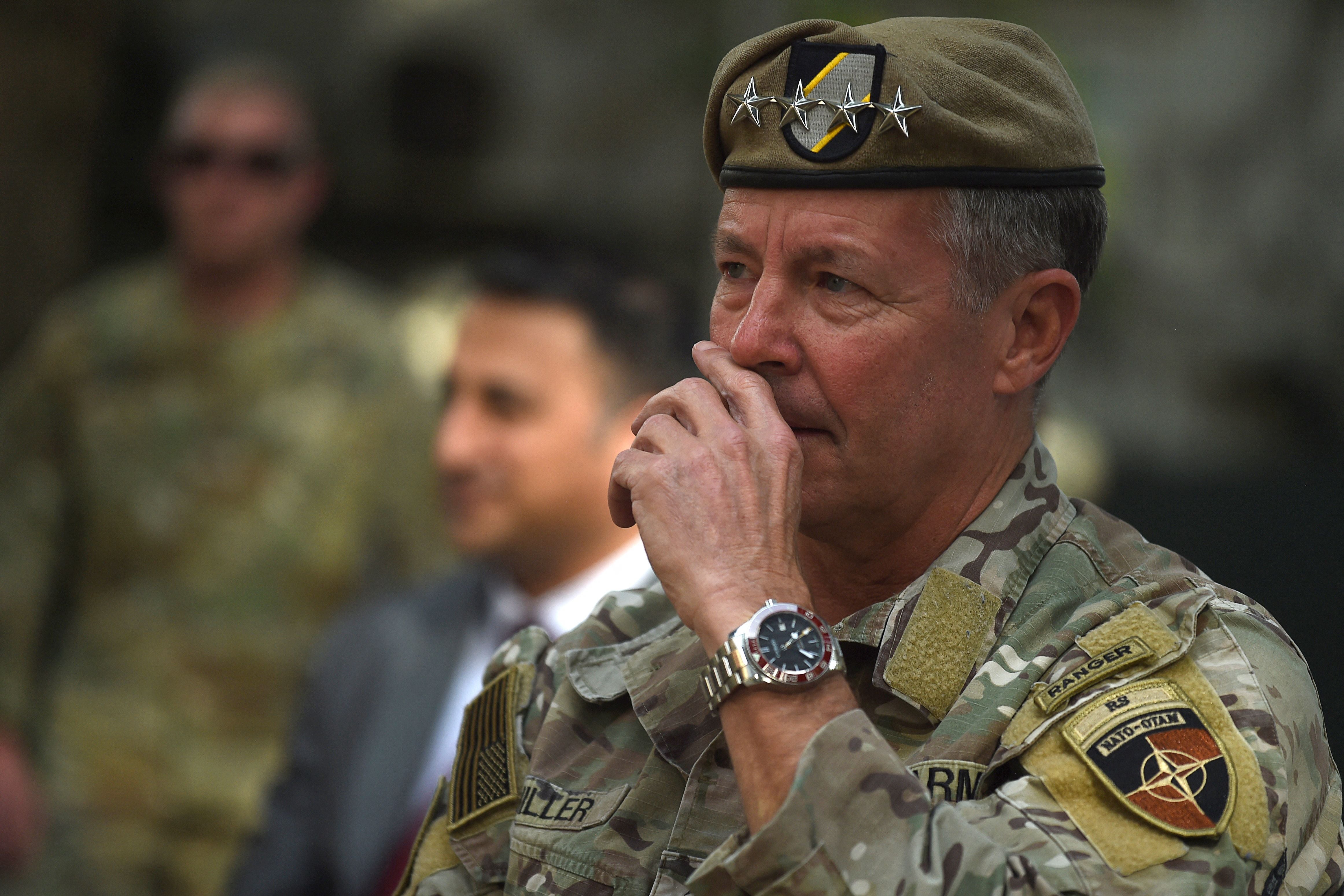Afghanistan on brink of humanitarian disaster, says UN
Fears of a humanitarian crisis have increased after the official departure of US-led forces

Your support helps us to tell the story
From reproductive rights to climate change to Big Tech, The Independent is on the ground when the story is developing. Whether it's investigating the financials of Elon Musk's pro-Trump PAC or producing our latest documentary, 'The A Word', which shines a light on the American women fighting for reproductive rights, we know how important it is to parse out the facts from the messaging.
At such a critical moment in US history, we need reporters on the ground. Your donation allows us to keep sending journalists to speak to both sides of the story.
The Independent is trusted by Americans across the entire political spectrum. And unlike many other quality news outlets, we choose not to lock Americans out of our reporting and analysis with paywalls. We believe quality journalism should be available to everyone, paid for by those who can afford it.
Your support makes all the difference.Thousands more people are expected to be displaced in Afghanistan as a result of the Taliban’s momentum in seizing power following the withdrawal of US-led troops, the United Nations (UN) has warned.
The country is on the verge of another humanitarian crisis as more Afghans will be forced to flee their homes in fear of living under the Taliban’s control and its escalating violence with militia groups, the UN’s refugee agency said.
On Monday, the 20-year-old conflict between Afghanistan and the US officially came to an end.
US top commander General Austin “Scott” Miller, who was leading the war in Afghanistan, relinquished command at a ceremony in Kabul before leaving the country.
His departure came days after President Joe Biden said that US-led military operations would cease by 31 August.
In the last 15 days, Taliban advances have driven more than 5,600 families from their homes, most of them in the northern reaches of the country, according to the government’s Refugee and Repatriations Ministry.
Babar Baloch, spokesman of the UN High Commissioner for Refugees (UNHCR), said during a news briefing in Geneva, Switzerland: “Afghanistan is on the brink of another humanitarian crisis. This can be avoided. This should be avoided.
“A failure to reach a peace agreement in Afghanistan and stem the current violence will lead to further displacement within the country, as well as to neighbouring countries and beyond.”
An estimated 270,000 Afghans had been newly displaced inside the country since January, bringing the total population forced from their homes to more than 3.5 million, the UNHCR said.
Those forced to flee blamed the security situation, extortion by non-state armed groups and improvised explosive devices (IEDs) on major roads, as well as a loss of income and interruptions to social services, Mr Baloch said.
The number of civilian casualties has risen by 29 per cent during the first three months of this year compared with 2020, the UNHCR said, citing figures from the UN Assistance Mission in Afghanistan.
“We urge the international community to step up support to the government and people of Afghanistan and its neighbours at this critical moment,” Mr Baloch said.

The Taliban has captured swathes of territory by launching assaults on cities and towns. An agreement that the Taliban signed with the US in February 2020 reportedly prevents the insurgents from capturing provincial capitals.
But now two cities — Kandahar in the south and Badghis in the north — are under siege.
Taliban officials said last week that it has taken control of 85 per cent of territory in Afghanistan, but the Afghan government has said that this is propaganda.
The government has launched a “national mobilisation” drive to arm local volunteers to back its militia groups.
Join our commenting forum
Join thought-provoking conversations, follow other Independent readers and see their replies
0Comments